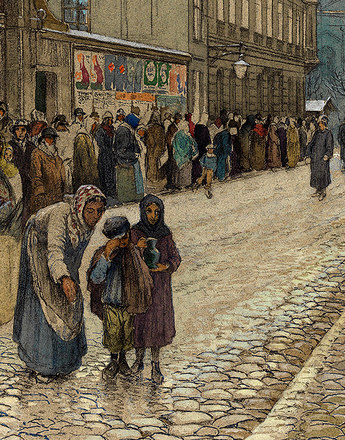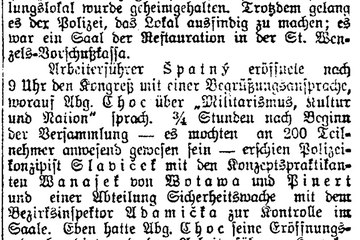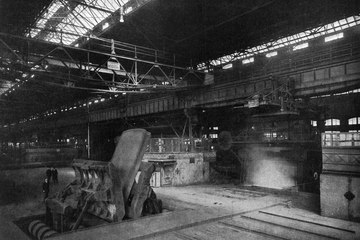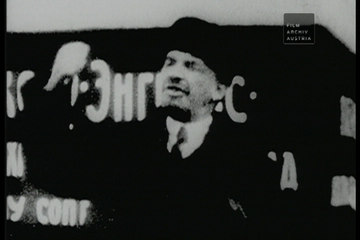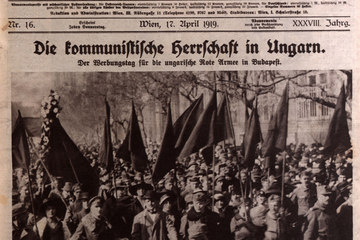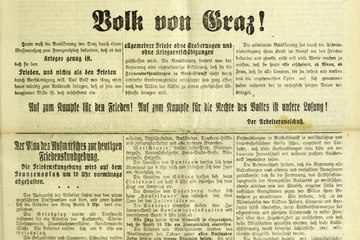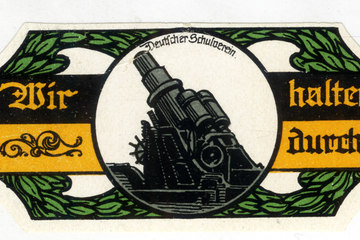Strikes, revolutionary movements
The transformation of production facilities for war work and the departure of the men to the front meant that women increasingly performed typical male jobs, in the armaments industry and elsewhere. They also had to feed their families and were thus the first to react to the increasingly precarious food situation and the extremely bad working conditions.
From winter 1916/17, when food was in particularly short supply, there were increasing strikes, some organised by women, which reached a highpoint in large parts of the Monarchy in January 1918. The strike movement was organised in Social Democratic and Communist workers’ councils. Even if the strike ended after a few days, it contributed to the defeat by paralysing strategic industries. The attempts to introduce a soviet-style system on the model of the Russian Revolution were successfully thwarted by the supporters of social democracy.

